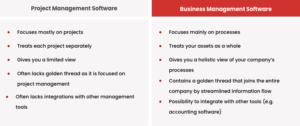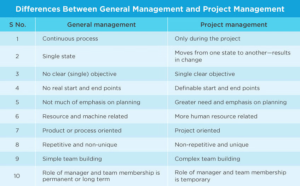Project Management and Supply Chain Management serve different purposes. The better option depends on your career goals.
Project Management involves planning and executing projects. It’s crucial for delivering specific goals within a timeframe. Supply Chain Management focuses on the flow of goods and services. It ensures efficiency from production to delivery. Both fields offer unique challenges and rewards.
Consider your interests and skills before choosing. Project Management suits those who enjoy leading teams and managing tasks. Supply Chain Management fits those who prefer logistics and operational efficiency. Each field has its own set of required skills and opportunities. So, evaluate your strengths and career aspirations to decide.
Introduction To Management Fields
Management fields are essential in today’s complex business environment. Two critical areas are Project Management and Supply Chain Management. Understanding both can help in making informed career choices.
Defining Project Management
Project Management involves planning, executing, and closing projects. Managers ensure projects meet goals, timelines, and budgets.
- Setting objectives
- Creating plans
- Managing resources
- Tracking progress
- Closing projects
Project managers use tools like Gantt charts and project management software. They also communicate with teams and stakeholders.
Defining Supply Chain Management
Supply Chain Management focuses on the flow of goods and services. It includes all processes from raw materials to final products.
| Aspect | Description |
|---|---|
| Planning | Forecasting demand and supply |
| Sourcing | Choosing suppliers |
| Manufacturing | Producing goods |
| Delivery | Transporting products |
| Returns | Handling returns and refunds |
Supply chain managers coordinate between different departments and organizations. They aim to improve efficiency and reduce costs.

Credit: www.linkedin.com
Core Responsibilities
Understanding the core responsibilities of Project Managers and Supply Chain Managers helps in choosing the right career path. Both roles are crucial in businesses, yet they differ in their key duties and focus areas.
Project Manager Duties
Project Managers are responsible for planning, executing, and closing projects. They work on specific projects with clear start and end dates. Below are some of their core responsibilities:
- Project Planning: Define project scope, goals, and deliverables.
- Team Management: Assemble and lead project teams.
- Budget Management: Allocate and manage project budgets.
- Risk Management: Identify and mitigate project risks.
- Timeline Management: Ensure projects meet deadlines.
- Stakeholder Communication: Maintain clear communication with all stakeholders.
Supply Chain Manager Duties
Supply Chain Managers oversee the entire supply chain process. Their focus is on ensuring products move efficiently from suppliers to customers. Here are their primary responsibilities:
- Supplier Management: Select and manage suppliers.
- Inventory Management: Control inventory levels and flow.
- Logistics Coordination: Plan and oversee logistics operations.
- Quality Control: Ensure product quality standards.
- Cost Management: Optimize supply chain costs.
- Data Analysis: Analyze supply chain data for improvements.
Skills Required
In the world of business, both project management and supply chain management play crucial roles. Each field demands a unique set of skills to ensure success. Understanding these skills can help in deciding which path to pursue.
Essential Skills For Project Managers
Project managers need to master various skills to lead teams and complete projects on time. Here are the essential skills:
- Leadership: Guide teams and inspire them to achieve goals.
- Communication: Clearly convey information to stakeholders and team members.
- Time Management: Ensure projects meet deadlines and stay on schedule.
- Problem-Solving: Quickly find solutions to unexpected issues.
- Budget Management: Keep projects within financial limits.
- Risk Management: Identify and mitigate potential risks.
Essential Skills For Supply Chain Managers
Supply chain managers need a different set of skills to ensure the efficient flow of goods and services. Here are the essential skills:
- Analytical Skills: Analyze data to improve supply chain efficiency.
- Negotiation Skills: Secure favorable terms with suppliers and partners.
- Technology Proficiency: Use software to manage logistics and inventory.
- Attention to Detail: Ensure accuracy in orders and deliveries.
- Customer Service: Maintain strong relationships with clients.
- Strategic Planning: Develop long-term strategies to optimize supply chain operations.
| Skill | Project Managers | Supply Chain Managers |
|---|---|---|
| Leadership | Essential | Important |
| Communication | Essential | Essential |
| Time Management | Essential | Important |
| Problem-Solving | Essential | Important |
| Budget Management | Essential | Less Important |
| Risk Management | Essential | Important |
| Analytical Skills | Less Important | Essential |
| Negotiation Skills | Less Important | Essential |
| Technology Proficiency | Important | Essential |
| Attention to Detail | Important | Essential |
| Customer Service | Important | Essential |
| Strategic Planning | Important | Essential |

Credit: www.bonniebiafore.com
Industry Applications
Understanding the industry applications of both project management and supply chain management can help you decide which path suits your career or business needs. Each field has unique benefits and challenges depending on the sector.
Project Management In Various Sectors
Project management is crucial in diverse industries. It ensures projects are completed on time and within budget. Here are some key sectors where project management is essential:
- Construction: Managing timelines, resources, and compliance with regulations.
- IT and Software: Overseeing software development, implementation, and support.
- Healthcare: Coordinating complex projects like hospital construction or system upgrades.
- Marketing: Planning and executing campaigns effectively and efficiently.
- Education: Managing curriculum updates or new program launches.
Supply Chain Management In Various Sectors
Supply chain management plays a vital role in many industries. It ensures the smooth flow of goods from production to the customer. Key sectors benefiting from supply chain management include:
- Manufacturing: Managing raw materials, production schedules, and inventory.
- Retail: Ensuring product availability and timely delivery to stores.
- Healthcare: Overseeing the procurement and distribution of medical supplies.
- Food and Beverage: Managing the supply of ingredients and products to meet demand.
- Automotive: Coordinating parts supply and production schedules.
Both project management and supply chain management are integral to the success of various industries. Understanding their applications can help you leverage their strengths for your specific needs.
Career Opportunities
Exploring career opportunities in Project Management and Supply Chain Management reveals distinct paths. Each field offers unique roles, growth potential, and job stability. Understanding job prospects in these areas helps in making informed decisions.
Job Prospects For Project Managers
Project Managers oversee projects from start to finish. They ensure timely and budget-friendly completion. Key industries employing Project Managers include:
- Construction
- IT
- Healthcare
- Finance
According to the Project Management Institute (PMI), demand for Project Managers grows annually. They predict a need for 22 million new Project Management roles by 2027. Skills in leadership, communication, and risk management are highly valued.
Certifications like PMP (Project Management Professional) enhance job prospects. Average salaries range from $80,000 to $120,000 annually, depending on experience and location.
Job Prospects For Supply Chain Managers
Supply Chain Managers optimize the production flow. They ensure goods move efficiently from suppliers to customers. Key industries for Supply Chain Managers include:
- Manufacturing
- Retail
- Logistics
- Pharmaceuticals
The Bureau of Labor Statistics (BLS) projects job growth for Supply Chain Managers at 4% from 2019 to 2029. Skills in logistics, inventory management, and data analysis are essential.
Certifications like CSCP (Certified Supply Chain Professional) and CPIM (Certified in Production and Inventory Management) boost career prospects. Average salaries for Supply Chain Managers range from $70,000 to $110,000 annually.
| Field | Key Industries | Certifications | Average Salary |
|---|---|---|---|
| Project Management | Construction, IT, Healthcare, Finance | PMP | $80,000 – $120,000 |
| Supply Chain Management | Manufacturing, Retail, Logistics, Pharmaceuticals | CSCP, CPIM | $70,000 – $110,000 |
Challenges Faced
Both project management and supply chain management come with their own set of challenges. Understanding these challenges helps in choosing the right career path. Let’s explore the common issues faced in each field.
Common Challenges In Project Management
Project managers often deal with various challenges. Here are some common ones:
- Scope Creep: Managing changes in project scope can be difficult.
- Budget Constraints: Staying within budget is a common issue.
- Time Management: Meeting deadlines requires careful planning.
- Team Coordination: Ensuring team members work well together is essential.
- Risk Management: Identifying and mitigating risks is crucial.
Common Challenges In Supply Chain Management
Supply chain managers face unique challenges as well. Some of these include:
- Inventory Management: Keeping the right amount of inventory is tricky.
- Supplier Relationships: Maintaining good relations with suppliers is vital.
- Demand Forecasting: Predicting customer demand accurately is challenging.
- Logistics: Ensuring timely delivery of goods is complex.
- Compliance: Adhering to regulations and standards is necessary.
Both fields have their own set of challenges. Knowing these can help in making an informed decision.
Technological Impact
The impact of technology on both project management and supply chain management is significant. Advanced tools and systems have transformed these fields, making processes more efficient and streamlined. This section explores the technological impact on both disciplines, focusing on the specific tools that aid in their success.
Tech Tools In Project Management
Project management thrives with the help of various tech tools. These tools ensure projects are completed on time and within budget. Here are some essential tools:
- Project Management Software: Applications like Asana, Trello, and Jira help track tasks and deadlines.
- Collaboration Tools: Tools like Slack and Microsoft Teams facilitate communication among team members.
- Time Tracking Software: Tools like Toggl and Harvest help monitor time spent on tasks.
- Resource Management Tools: Software such as Resource Guru and Float help allocate resources efficiently.
- Reporting Tools: Applications like Tableau and Power BI provide detailed project reports.
Tech Tools In Supply Chain Management
Supply chain management benefits from technology to enhance logistics and operations. Here are some essential tools:
- Inventory Management Software: Tools like SAP, Oracle, and Fishbowl manage inventory levels and orders.
- Warehouse Management Systems (WMS): Software such as Manhattan Associates and HighJump optimize warehouse operations.
- Transportation Management Systems (TMS): Tools like C.H. Robinson and MercuryGate manage transportation logistics.
- Supply Chain Planning Tools: Software such as Kinaxis and Logility help forecast demand and plan supply chain activities.
- Blockchain Technology: Blockchain ensures transparency and traceability in the supply chain.
Both project management and supply chain management leverage technology to improve efficiency. Each field uses specific tools tailored to their unique needs, illustrating the profound technological impact on their operations.

Credit: www.youtube.com
Choosing The Right Path
Deciding between Project Management and Supply Chain Management can be challenging. Both fields offer distinct benefits and career opportunities. The key is to understand your interests and market demands. Let’s explore these factors to help you make an informed decision.
Assessing Your Interests
Your interests play a crucial role in choosing the right career path. Do you enjoy managing tasks and leading teams? If so, you might prefer Project Management. Project managers coordinate projects from start to finish. They ensure deadlines are met and goals are achieved.
On the other hand, if you like optimizing processes and logistics, Supply Chain Management might be your calling. Supply chain managers oversee the flow of goods and services. They aim to improve efficiency and reduce costs.
- Project Management: Focuses on individual projects, timelines, and team leadership.
- Supply Chain Management: Involves logistics, process optimization, and cost management.
Considering Market Demand
Market demand is another critical factor. Understanding which field has more opportunities can guide your decision. According to recent reports, both fields show promising growth.
| Field | Job Growth | Average Salary |
|---|---|---|
| Project Management | 10% increase by 2028 | $90,000 annually |
| Supply Chain Management | 9% increase by 2028 | $85,000 annually |
Both fields offer competitive salaries and job growth. Your choice should align with your passion and skill set. Evaluate the job market trends in your area. This can provide better insight into which path is more viable for you.
In summary, assess your interests and market demand. This will help you choose between Project Management and Supply Chain Management.
Frequently Asked Questions
What Is Project Management?
Project management involves planning, organizing, and overseeing projects to achieve specific goals. It ensures tasks are completed on time and within budget.
What Is Supply Chain Management?
Supply chain management manages the flow of goods and services. It includes all processes that transform raw materials into final products.
Which Career Is More In Demand?
Both project management and supply chain management are in high demand. The choice depends on industry needs and your career goals.
Which Role Offers Better Salary Prospects?
Salary prospects can vary by industry and experience. Generally, project managers and supply chain managers both enjoy competitive salaries.
Conclusion
Choosing between project management and supply chain management depends on your career goals. Both fields offer unique opportunities and challenges. Project management focuses on planning and executing projects. Supply chain management ensures smooth production and delivery. Consider your interests and strengths.
This will guide you to the right path.






